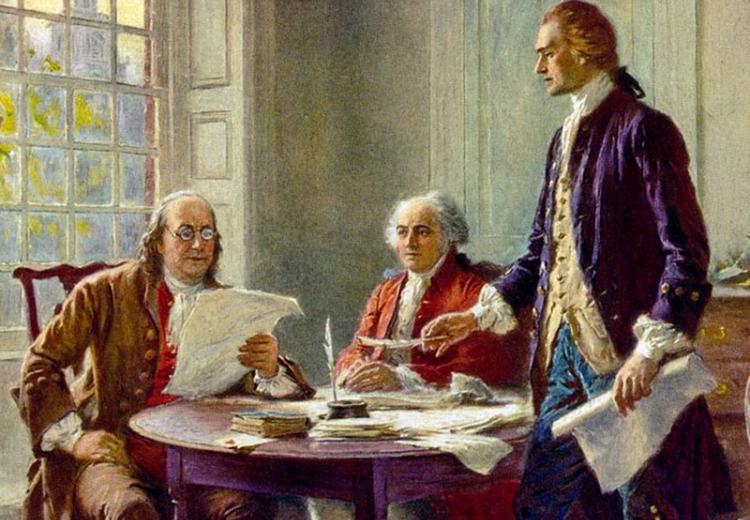The Argument of the Declaration of Independence

Thomas Jefferson (right), Benjamin Franklin (left), and John Adams (center) meet at Jefferson's lodgings, on the corner of Seventh and High (Market) streets in Philadelphia, to review a draft of the Declaration of Independence.
Long before the first shot was fired, the American Revolution began as a series of written complaints to colonial governors and representatives in England over the rights of the colonists.
In fact, a list of grievances comprises the longest section of the Declaration of Independence. The organization of the Declaration of Independence reflects what has come to be known as the classic structure of argument—that is, an organizational model for laying out the premises and the supporting evidence, the contexts and the claims for argument.
According to its principal author, Thomas Jefferson, the Declaration was intended to be a model of political argument. On its 50th anniversary, Jefferson wrote that the object of the Declaration was “[n]ot to find out new principles, or new arguments, never before thought of, not merely to say things which had never been said before; but to place before mankind the common sense of the subject, in terms so plain and firm as to command their assent, and to justify ourselves in the independent stand we are compelled to take.”
Guiding Questions
What kind of a document is the Declaration of Independence?
How do the parts and structure of the document make for a good argument about the necessity of independence?
What elements of the Declaration of Independence have been fulfilled and what remains unfulfilled?
Learning Objectives
Analyze the Declaration of Independence to understand its structure, purpose, and tone.
Analyze the items and arguments included within the document and assess their merits in relation to the stated goals.
Evaluate the short and long term effects the Declaration of Independence on the actions of citizens and governments in other nations.
